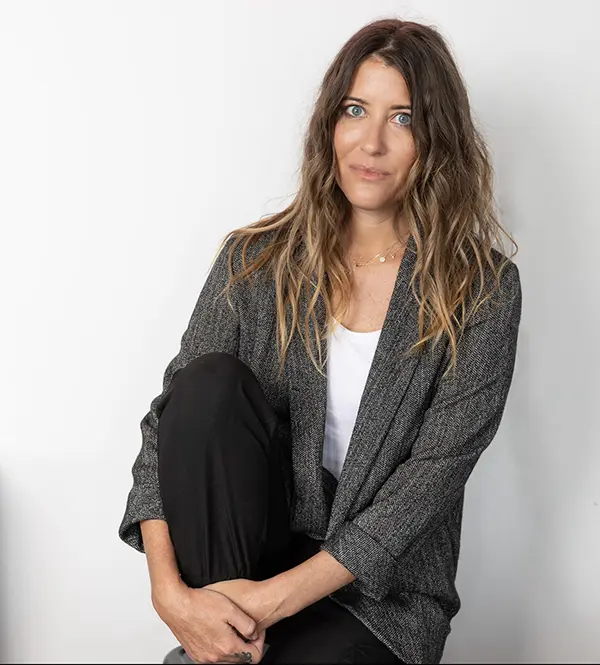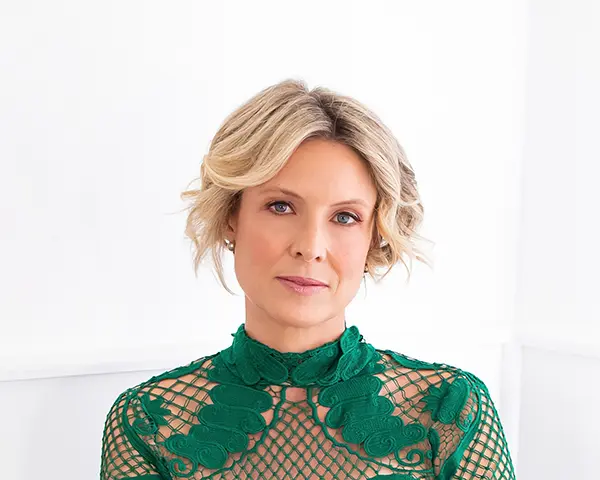- Biological male “Roxanne Tickle” sues “Giggle for Girls” app, and founder Sall Grover, for female-only membership policy – ADF International supports Giggle’s defence
- Case pivotal in determining rights of women to congregate in female-only spaces, with implications for the safety of women’s sports, crisis shelters, and changing rooms and more

SYDNEY (8th April 2024) – Should women be forced to open female-only spaces to biological men? Such will be the question asked of the Federal Court of Australia on Tuesday 9th, April in the landmark case of Roxanne Tickle v. Giggle for Girls (“Tickle v. Giggle”), in which Tickle, a biological male who self-identifies as a woman, claims to have faced discrimination in being banned from a female-only networking app, “Giggle”.
Tickle claims that being “legally permitted to identify as female” and having had his birth certificate edited to represent him as such, he should be permitted into spaces designated for biological women. The defence maintains that women have a right to single-sex spaces, both online and offline. The defence refutes that Tickle was discriminated on the basis of gender identity; instead, they argue that Tickle’s disqualification from joining the app was on the basis of sex.
The case asks the court to address the conflict between gender identity claims and the hard-fought and well-established sex-based rights of biological females – essentially deciding who and what is a “woman”.
“We are taking a stand for the safety of all women’s only spaces, but also for basic reality and truth, which the law should reflect.”
- Sall Grover, CEO of Giggle and respondent in the law suit
ADF International supports Giggle’s defence, on the principle that Australian law must uphold the truth on biological reality.
Sall Grover, CEO of Giggle and respondent in the law suit, said:
“For decades, women’s movements have fought for the right to have female spaces in society. Yet today, the clock is being wound back.
“I designed my app to give women their own space to network. It is a legal fiction that Tickle is a woman. His birth certificate has been altered from male to female, but he is a biological man, and always will be. A woman’s-only app isn’t about discrimination. It’s about freedom of speech, belief and association.
“We are taking a stand for the safety of all women’s only spaces, but also for basic reality and truth, which the law should reflect.”
A legal landmark for sex-based rights
The case’s outcome will be a landmark ruling for Australia, and could set a legal precedent for how to resolve gender identity claims when they conflict with sex-based rights.
The defence will argue that Australia’s ratification of CEDAW (the Convention on the Elimination of Discrimination Against Women) obliges the State to protect women’s rights, including to single-sex spaces – and that expanding the legal definition of “women” to include biological men contradicts this key international treaty.
CEDAW was implemented in Australia through the Sex Discrimination Act (1984), which considers differentiations on the basis of sex lawful for the purposes of supporting equality for women. In 2013, the Australian government amended the Act to make it unlawful to discriminate against persons on the basis of “gender identity”. The amendments also removed the biologically-grounded definitions of “woman” and “man”, thus rendering women’s protections on the basis of sex meaningless.
The defence will argue that the Australian government acted unconstitutionally in amending the Sex Discrimination Act to legislate “gender identity” as a protected characteristic, against the purposes for which the Act was designed, and for which there is no basis in CEDAW or any other international treaties.
The outcome of the decision will be of high importance to countries across the world who have ratified CEDAW, including the United Kingdom. A win for “Giggle” could help to safeguard the provision of female-only services and spaces across the world.
Katherine Deves of Alexander Rashidi Lawyers, legal representatives for the Respondent, said:
“Our client has been dragged through the courts for almost two years, but she continues to fight to uphold the simple principle that women are different to men; and that they deserve the opportunity to meet in female-only spaces if they want to.“
“In 2013, the definitions of “man” and “woman” were removed from our federal Sex Discrimination Act, and “gender identity” was inserted, derogating from international human rights obligations on the basis of biological sex. Ironically, the Act was passed to protect and uphold women’s rights, but that purpose that been subverted by gender ideology. The Act has been turned from a shield to a sword for the purpose of censoring the obvious truth that a man cannot become a woman.

“The Federal Court of Australia will have to make an ultimate decision on the most basal question – what is a woman?”
“The stakes are high in this case. Women’s international human rights will be lost if “woman” now includes any male who identifies as such. This decision matters not just in Australia but also to the watching world.”
“The Federal Court of Australia will have to make an ultimate decision on the most basal question – what is a woman?“
- Katherine Deves of Alexander Rashidi Lawyers, legal representatives for the Respondent
A decision of international significance
The case comes at a time where women around the world are fighting to protect the right to single-sex spaces. JK Rowling, for example, has been outspoken about the need to ensure rape-crisis shelters, bathrooms, locker rooms and prison cells remain single-sex. Meanwhile, the UN Special Rapporteur on Violence Against Women and Girls has petitioned the Biden Administration to protect female-only sports and changing facilities to safeguard against a “loss of privacy, an increased risk of physical injury, heightened exposure to sexual harassment and voyeurism, as well as a more frequent and accumulated psychological distress due to the loss of privacy and fair and equal sporting and academic opportunities.”
In the context of the case, the Australian Human Rights Commission invited input from the UN Special Rapporteur on Violence Against Women and Girls to give input on the meaning of the word “woman” in CEDAW.
In her submission, now published in full, the Special Rapporteur Reem Alsalem supported the importance of protecting women’s sex-based rights:
“While not addressing or defining the terms “sex” or “gender”, many foundational human rights treaties, and declarations, including CEDAW, enshrine a prohibition of discrimination based on sex which can only be taken to mean as referring to biological sex. In General Recommendation No. 28, the CEDAW Committee reiterated that “the objective of the Convention is the elimination of all forms of discrimination against women on the basis of sex”.”
Robert Clarke, Director of Advocacy for ADF International, stated:
“In a world of confusion, it’s critical that law must always uphold truth. Men cannot become women, and we cannot change decades of hard-fought legal agreements and rights simply to accommodate a lie.
“This case has significant implications for the watching world, as women fight in every corner to maintain their access, in the name of equality and non-discrimination, to single-sex spaces, including sports, changing rooms, counselling groups, crisis centers and more. International law knows what a woman is, and it’s time for Australia’s courts to reaffirm biological reality too.”
Images for free use in print or online in relation to this story only
PICTURED: Sall Grover, CEO of Giggle; Katherine Deves of Alexander Rashidi Lawyers, legal representatives for the Respondent; Robert Clarke, Director of Advocacy, ADF International








